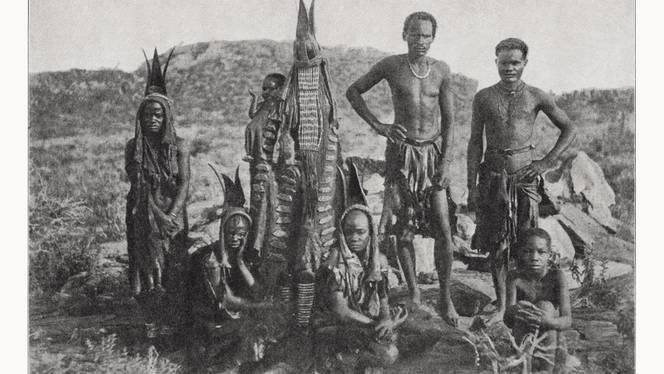Genocide in Namibia, Hidden from History

Agencies – Sudan Events
The remains of an estimated 70,000 Namibians who perished in what is considered the first genocide of the 20th century lie under the dunes of the sprawling Namib Desert.
Many others were washed into the depths of the ice-cold waters of the South Atlantic Ocean.
This colonial-era genocide of numbing proportions was perpetrated by German forces on the indigenous Herero and Nama people between 1904 and 1908.
As the late President Sukarno of Indonesia would say, “Don’t ever forget the history. It will make and change who we are.”
In 2021, after years of negotiations, Germany formally acknowledged the blot on its colonial history as “a genocide”.
By way of reparation, the European nation agreed to fund projects in Namibia worth US $1.3 billion over 30 years for its role in the mass killings.
But even before the dust could settle on the injustices of 120 years ago, Germany made a decision that shocked Namibia and reopened old wounds.
The German government pledged to intervene on Israel’s behalf in the case brought by South Africa at the International Court of Justice (ICJ) in The Hague over what is widely regarded as a “genocide” against Palestinians in Gaza.
Namibia sees it as a reflection of Germany being less than repentant for its sullied history.
In a statement, Namibia’s Ex-President, the Late; Hage Geingob said that “the German government is yet to fully atone for the genocide it committed on Namibian soil”.
“Germany cannot morally express commitment to the United Nations’ convention against genocide, including atonement for the genocide in Namibia, whilst supporting the equivalent of a holocaust and genocide in Gaza,” he said.
Jazama’s Herero ancestors were executed for resisting the German occupation of their land.
“There was an extermination order against my people, and we were driven out into the desert to starve and die of thirst. Today, it is playing out in Gaza, where Palestinians are put under a total blockade,” she says.
Some 13,000 Hereros who survived the horrors of the desert in Namibia were transferred to concentration camps, where they were killed.
“Strangely, not many people know of the Namibian genocide,” says Jazama. “It is hidden from history.”
Some historians even argue that the concentration camps in Namibia seem to have inspired the modelling of the Nazi concentration camps in Germany, where millions of Jews were killed under Adolf Hitler’s regime.
In the wake of the Holocaust in Germany, Britain pledged to establish a national home for the Jewish people in Palestine under the Balfour Declaration.
As Jewish migration to Palestine gained momentum, their population in Palestine rose from 6% to 33% between 1918 and 1947.
Palestinians were alarmed by the demographic change, and tensions rose, leading to the Palestinian-Israeli conflict, which has since become arguably the world’s most intractable conflict.
The Israeli atrocities in Gaza compelled South Africa to take Israel to the dock at the International Court of Justice (ICJ).
But Germany strongly rejects the genocide charges, arguing that Israel was only “defending itself”.



